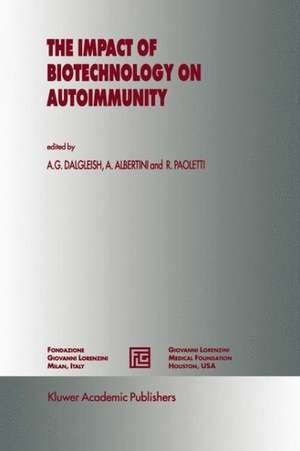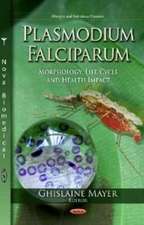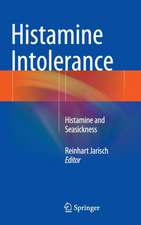The Impact of Biotechnology on Autoimmunity: Medical Science Symposia Series, cartea 6
Editat de A.G. Dalgleish, A. Albertini, Rodolfo Paolettien Limba Engleză Hardback – 28 feb 1994
| Toate formatele și edițiile | Preț | Express |
|---|---|---|
| Paperback (1) | 1401.82 lei 6-8 săpt. | |
| SPRINGER NETHERLANDS – 12 oct 2012 | 1401.82 lei 6-8 săpt. | |
| Hardback (1) | 1408.60 lei 6-8 săpt. | |
| SPRINGER NETHERLANDS – 28 feb 1994 | 1408.60 lei 6-8 săpt. |
Din seria Medical Science Symposia Series
- 5%
 Preț: 368.37 lei
Preț: 368.37 lei - 5%
 Preț: 391.79 lei
Preț: 391.79 lei - 5%
 Preț: 657.90 lei
Preț: 657.90 lei - 5%
 Preț: 373.12 lei
Preț: 373.12 lei - 5%
 Preț: 658.63 lei
Preț: 658.63 lei - 5%
 Preț: 374.05 lei
Preț: 374.05 lei - 5%
 Preț: 1102.67 lei
Preț: 1102.67 lei - 5%
 Preț: 646.58 lei
Preț: 646.58 lei - 5%
 Preț: 359.98 lei
Preț: 359.98 lei - 5%
 Preț: 777.55 lei
Preț: 777.55 lei - 5%
 Preț: 707.69 lei
Preț: 707.69 lei - 18%
 Preț: 948.92 lei
Preț: 948.92 lei - 5%
 Preț: 1111.26 lei
Preț: 1111.26 lei - 15%
 Preț: 641.38 lei
Preț: 641.38 lei - 5%
 Preț: 382.26 lei
Preț: 382.26 lei - 5%
 Preț: 375.13 lei
Preț: 375.13 lei - 5%
 Preț: 711.15 lei
Preț: 711.15 lei - 5%
 Preț: 1426.33 lei
Preț: 1426.33 lei -
 Preț: 386.99 lei
Preț: 386.99 lei - 5%
 Preț: 377.52 lei
Preț: 377.52 lei - 5%
 Preț: 1101.21 lei
Preț: 1101.21 lei
Preț: 1408.60 lei
Preț vechi: 1482.74 lei
-5% Nou
Puncte Express: 2113
Preț estimativ în valută:
269.62€ • 292.97$ • 226.63£
269.62€ • 292.97$ • 226.63£
Carte tipărită la comandă
Livrare economică 21 aprilie-05 mai
Preluare comenzi: 021 569.72.76
Specificații
ISBN-13: 9780792327240
ISBN-10: 0792327241
Pagini: 137
Ilustrații: X, 137 p.
Dimensiuni: 170 x 244 x 10 mm
Greutate: 0.39 kg
Ediția:1994
Editura: SPRINGER NETHERLANDS
Colecția Springer
Seria Medical Science Symposia Series
Locul publicării:Dordrecht, Netherlands
ISBN-10: 0792327241
Pagini: 137
Ilustrații: X, 137 p.
Dimensiuni: 170 x 244 x 10 mm
Greutate: 0.39 kg
Ediția:1994
Editura: SPRINGER NETHERLANDS
Colecția Springer
Seria Medical Science Symposia Series
Locul publicării:Dordrecht, Netherlands
Public țintă
ResearchCuprins
I. Molecular Mechanisms of Autoimmunity.- 1. Role of HLA-DQ2 and -DQ8 as Susceptibility Molecules in CoeliacDisease - A Model-disease of Autoimmunity.- 2. Immunoglobulin V Gene Repertoire of Human B Cells.- 3. Recent Progress in Human Natural Killer Cell Ontogeny.- II. Diagnostic Markers in Autoimmune Disease.- 4. Role of the HLA-DQ Genotype in IDDM Susceptibility.- 5. New Clinical and Molecular Features of “Essential” MixedCryoglobulinemia.- III. Infection and Autoimmunity.- 6. Post-Streptococcal Autoimmune Sequelae: A Link Between Infectionand Autoimmunity.- 7. Infection and Autoimmunity: Possible Contribution of Heat Shock Proteins.- 8. Chronic Infection and Autoimmunity.- 9. The Role of HLA Mimicry by HIV in the Pathogenesis of AIDS.- 10. Idiotypic Induction of Autoimmune Diseases: A New Aspect ofInfection and Autoimmunity.- IV. Clinical Aspects of Autoimmune Diseases.- 11. Immunopathology of Insulin-Dependent Diabetes Mellitus (IDDM).- 12. Autoimmune Mechanisms in Rheumatoid Synovial Inflammation.- 13. Antinuclear Antibodies: Clinical and Diagnostic Relevance.- 14. TAPI Allele Association with IDDM.- V. Therapeutic Advances in Autoimmune Diseases.- 15. Induction of Peripheral Tolerance in Primed Mice.- 16. Epitope Screening Libraries: A New Strategy to Identify MHC-Specific Antagonists.- 17. The Therapeutic Use of Anti-CD3 Monoclonal Antibodies inAutoimmune Diseases-Application to Type I Insulin-Dependent Diabetes.- 18. Engineering of IL-1 Antagonists.











